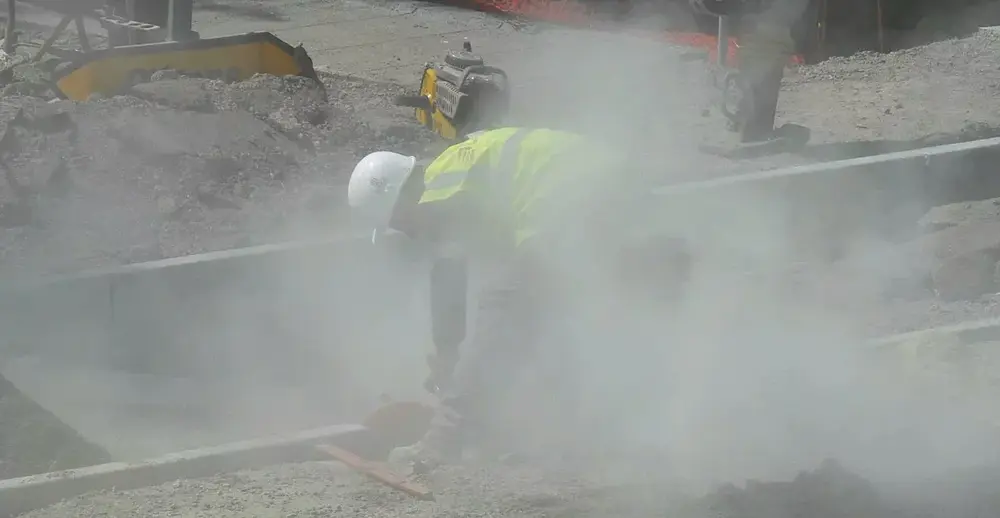No products in the basket.

Should Employers Follow Asbestos Awareness Training with Dust Management and Silica Control Training?
As an employer in construction, you already know how critical Asbestos Awareness training is. It’s often one of the first mandatory health and safety course your team completes — safeguarding them against one of the most dangerous materials still present in many UK buildings constructed before 2000.
But asbestos isn’t the only respiratory threat on site. Everyday activities such as cutting, drilling, sanding, and grinding release construction dust — including respirable crystalline silica (RCS), now a major enforcement focus for the HSE.
So the question is:
If your team has completed Asbestos Awareness, should you follow this with training specifically for dust management and silica control?
Asbestos Awareness provides employees with a good foundation in recognising hazardous airborne materials and understanding why control measures are vital.
Dust Management in Construction training builds on this by teaching your workforce how to:
Dust control measures are most effective when combined with the correct use of respiratory protective equipment (RPE).
Even where employers provide the right masks and filters, issues often arise because:
We therefore recommend pairing Dust Management & Silica Control training with dedicated RPE training. This ensures your workforce not only understands the risk but can competently protect themselves every day.
Key Takeaway
At Workforce Skills Support, we provide a comprehensive suite of courses to protect your workforce:
Contact us today to discuss a tailored package for your business. Call us on 01623 287830.
Yes. While Asbestos Awareness protects against asbestos, workers also face hazards from dust such as silica, wood, plasterboard, and cement dust. Additional training in Dust Management & Silica Control is essential for full respiratory safety.
This training teaches construction workers to identify dust hazards, implement suppression techniques, use respiratory protective equipment (RPE) correctly, and comply with HSE standards and COSHH regulations.
Silica dust can cause serious lung diseases, including silicosis, lung cancer, and chronic obstructive pulmonary disease (COPD). It is a major focus for HSE enforcement due to its long-term health risks.
RPE training ensures workers know how to select, fit, maintain, and use masks and filters properly. Correct RPE use significantly reduces inhalation of harmful construction dusts.
Under COSHH regulations, employers must assess, control, and monitor exposure to hazardous substances, including dust. Providing Dust Management & Silica Control Training demonstrates compliance during HSE inspections.
Ensures legal compliance with COSHH
Protects workforce health and safety
Reduces long-term liability
Boosts client confidence in your safety standards
Improves on-site workforce competence
Asbestos Awareness Training – foundation course for asbestos risks
Dust Management & Silica Control Training – addresses other airborne hazards
RPE Training – practical competency in selecting, fitting, and using respiratory protection
Yes. Workforce Skills Support offers tailored training packages combining Asbestos Awareness, Dust Management & Silica Control, and RPE Training to protect your workforce and ensure compliance.
Yes. The CITB Short Qualification Grant helps employers reduce costs for approved short courses, including dust and asbestos training.
Contact Workforce Skills Support at 01623 287830 to discuss a tailored training package for your business.
CITB Short Qualification Grant – Find out how you can claim funding support for approved short qualifications to reduce training costs.
Statement – Clarification on course duration for the Level 2 Award in Asbestos Awareness – Clear guidance on course delivery timescales, funding, and why this regulated qualification stands above CPD alternatives.
ARCA AMI Skills Card – Industry-recognised card for asbestos professionals, proving competence and access to asbestos removal sites.
ACAD Skills Card – The official asbestos card from ACAD, supporting competence recognition and site access for asbestos workers.